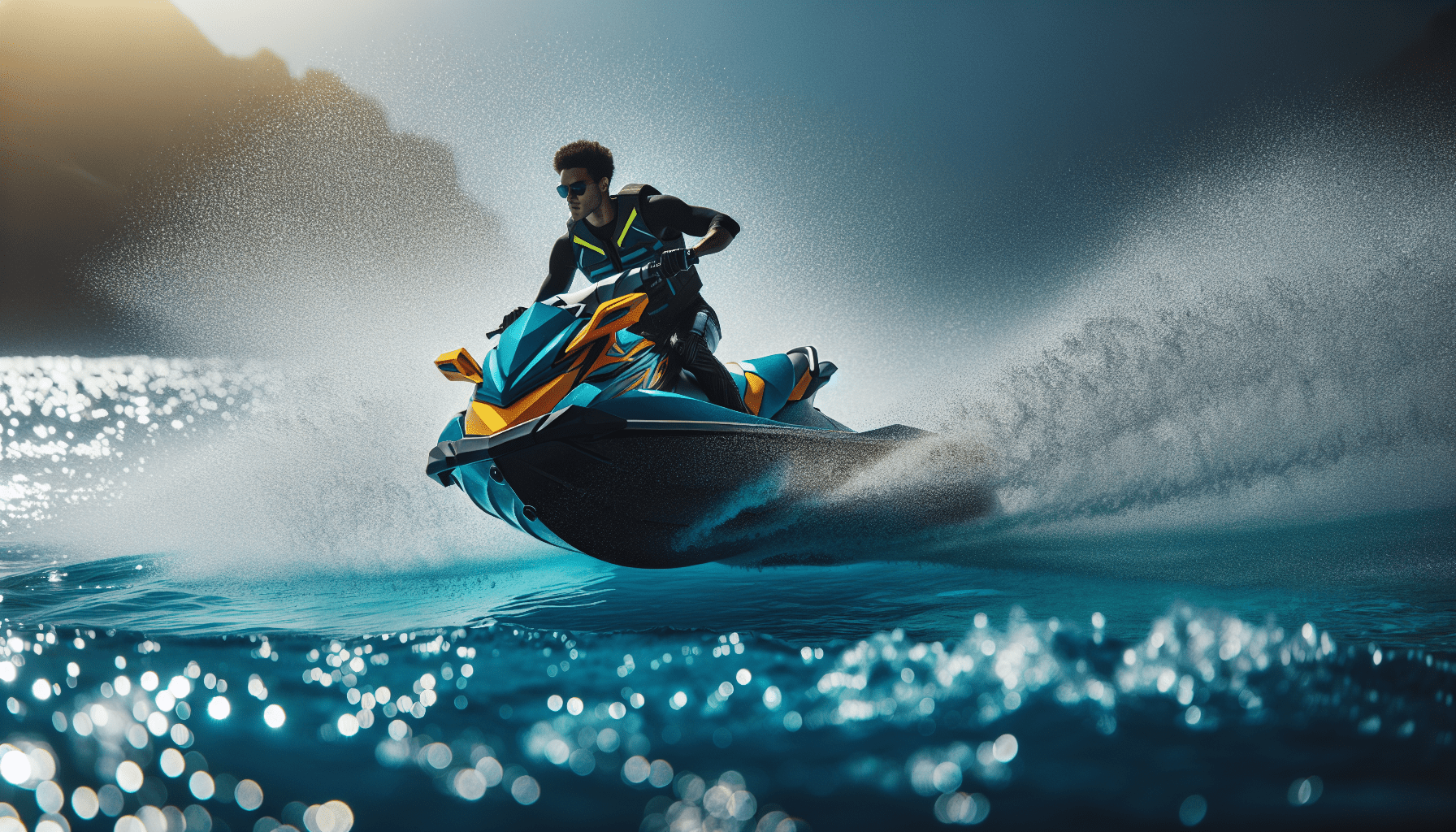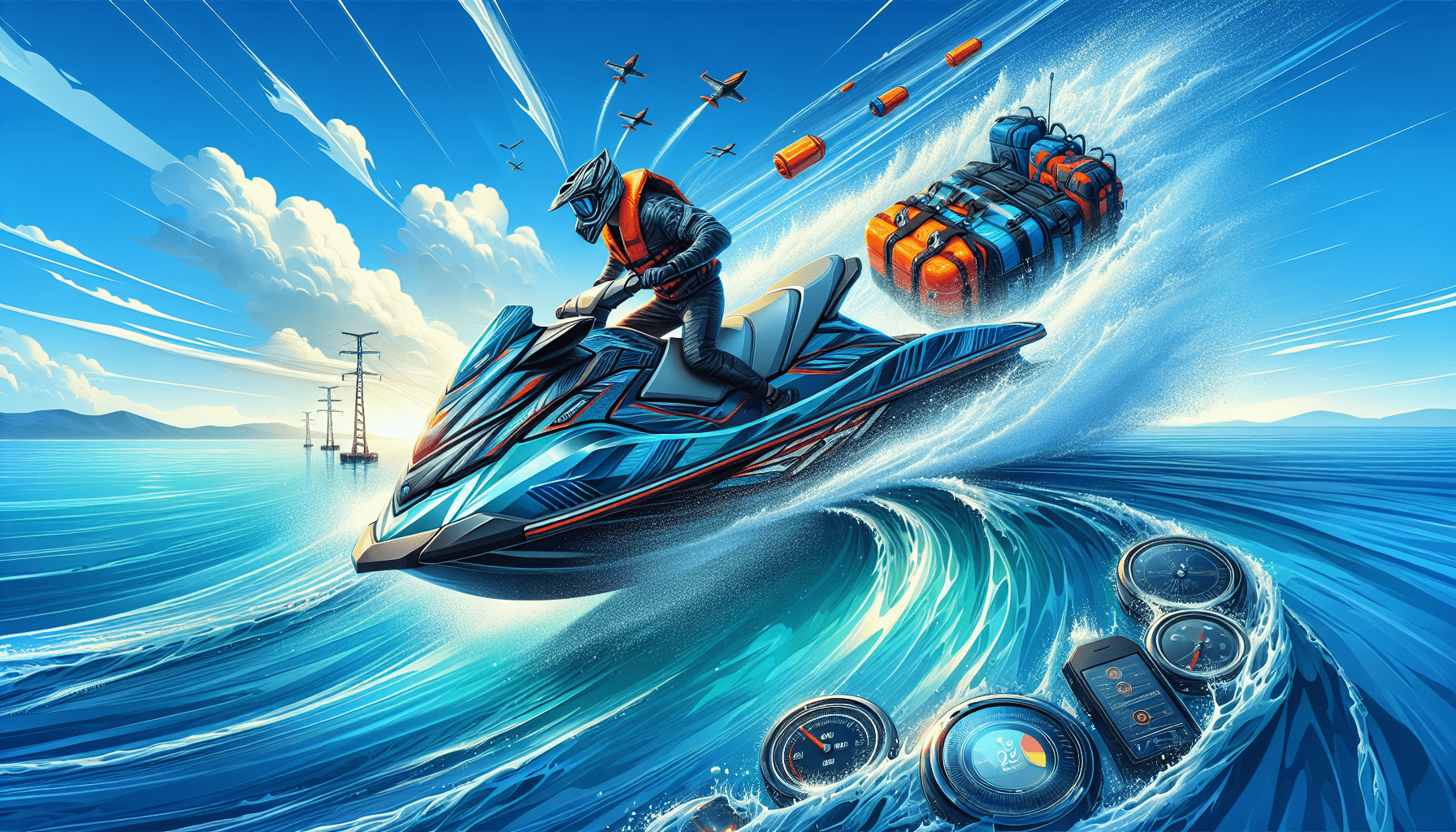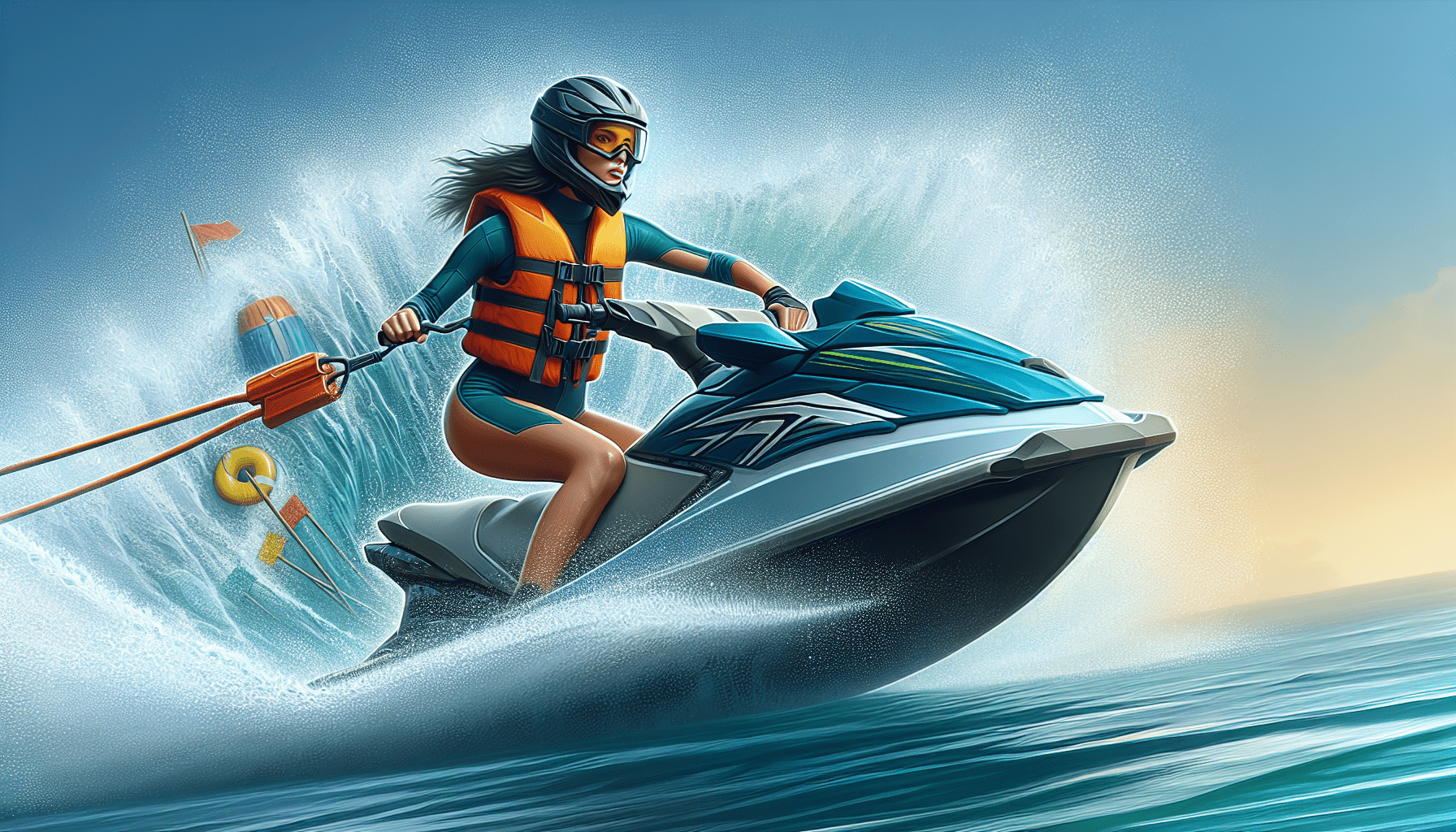Do You Need Training To Ride A Jet Ski?

Have you ever dreamed of gliding across the water on a thrilling jet ski? If so, you might be wondering if training is necessary before embarking on this exciting adventure. Look no further than A2Z Powersport, the go-to company that knows all about jet skis and the industry. Located in Gulf Shores, AL at the Fort Morgan Marina, A2Z Powersport is the perfect place to rent a jet ski and satisfy your need for speed. With their wealth of knowledge and experience, they can guide you through the necessary training to ensure a safe and enjoyable ride. So, whether you’re a seasoned pro or a beginner, don’t hesitate to contact A2Z Powersport and experience the thrill of jet skiing today!
The Importance of Training
When it comes to riding a jet ski, training plays a crucial role in ensuring both your safety and the safety of others around you. Jet skis can be exhilarating and fun, but they also come with risks and hazards. By undergoing proper training, you can gain the knowledge and skills needed to navigate the waters responsibly and confidently.
Understanding the Risks
Before getting on a jet ski, it’s important to understand the risks involved. Jet skis can reach high speeds and maneuver quickly, making them potentially dangerous if operated without caution. Understanding the risks associated with jet skiing, such as collisions, capsizing, and falling overboard, is essential for staying safe on the water.
Familiarizing with Safety Equipment
Another crucial aspect of training is becoming familiar with the safety equipment used while riding a jet ski. Personal flotation devices (PFDs) are a must-have, as they can save lives in the event of an accident. Training will teach you how to properly wear and maintain your PFD, ensuring maximum safety on the water.
Learning Jet Ski Operation
Proper training will also teach you how to operate a jet ski effectively. From starting the engine to controlling the speed and steering, learning the ins and outs of jet ski operation is essential for a safe and enjoyable experience. Training will cover topics such as throttle control, turning techniques, and emergency procedures, equipping you with the necessary knowledge for a smooth ride.
Training Options
When it comes to jet ski training, there are several options available to choose from. Each option has its own advantages and can cater to different learning styles.
Professional Training Courses
Professional training courses are an excellent choice for those who prefer hands-on learning and personalized instruction. These courses are typically offered by experienced instructors who can teach you the necessary skills and safety procedures. They often include both classroom sessions and practical on-water training, allowing you to gain a comprehensive understanding of jet ski operation and safety.
Online Training Resources
For those who prefer a flexible learning schedule or live in areas where in-person training is limited, online training resources can be a valuable option. There are various online courses and tutorials available that cover topics such as basic operation, safety guidelines, and navigation rules. While online training may lack the practical aspect of in-person courses, they can still provide valuable information and knowledge to enhance your jet ski riding skills.
Manufacturer’s Recommendations
Many jet ski manufacturers provide their own training resources and guidelines. These resources are specifically tailored to their specific models and can provide valuable insights into proper operation and maintenance. Manufacturer’s recommendations can be found in the owner’s manual or on their official websites. Incorporating these resources into your training can ensure that you are fully informed about the specific characteristics and requirements of your jet ski model.
Benefits of Proper Training
Proper training offers numerous benefits that greatly enhance your jet ski riding experience. Aside from the obvious safety advantages, training can improve your overall riding skills and reduce the risk of accidents and injuries.
Enhanced Safety
The primary benefit of training is enhanced safety. Knowing the proper safety procedures, understanding your equipment, and being familiar with the rules and regulations of the waterways all contribute to a safer riding experience. By equipping yourself with the right knowledge, you can minimize the chances of accidents and protect both yourself and others on the water.
Improved Riding Skills
Training also helps improve your riding skills. From learning proper technique to understanding how to handle different water conditions, training allows you to develop the necessary skills to ride with confidence and control. With practice and guidance from trained instructors, you can refine your riding abilities and become a skilled jet skier.
Reduced Accidents and Injuries
By undergoing proper training, you significantly reduce the risk of accidents and injuries. Training not only teaches you how to avoid hazardous situations but also equips you with the skills to react appropriately in case of an emergency. With the knowledge and skills gained from training, you can enjoy your jet skiing adventures with peace of mind, knowing that you are prepared to handle any situation that may arise.
Legal Requirements
In addition to the safety benefits, proper training may also be a legal requirement depending on your location. It is important to familiarize yourself with the specific laws and regulations regarding jet ski operation in your area.
Licensing and Age Restrictions
Some jurisdictions require a valid license or permit to operate a jet ski. These licenses often have age restrictions and may require completion of a boater safety education course. It is essential to comply with these requirements to avoid legal consequences and ensure the safety of yourself and others.
Boater Safety Education Certificates
In certain regions, completion of a boater safety education course and obtaining a certificate may be mandatory for operating a jet ski. These courses cover important topics such as navigation rules, safety procedures, and emergency preparedness. Certification demonstrates your commitment to responsible jet skiing and compliance with the law.
Finding a Reputable Training Provider
When it comes to choosing a jet ski training provider, it is crucial to find a reputable and reliable option. Here are some key steps to consider during your search:
Researching Jet Ski Training Providers
Start by doing thorough research on available jet ski training providers in your area. Look for providers that have a good reputation for offering quality instruction and a comprehensive curriculum.
Checking for Certifications and Accreditation
Ensure that the training provider you choose has the necessary certifications and accreditation. This indicates that they meet specific standards and adhere to best practices in terms of instruction and safety.
Reading Reviews and Testimonials
Reading reviews and testimonials from previous students can provide insight into the overall experience and effectiveness of the training program. Look for positive feedback regarding the instructors’ knowledge, teaching methods, and the relevance of the content.
Basic Jet Ski Safety Rules
To ensure a safe and enjoyable experience on your jet ski, it is essential to follow some basic safety rules at all times. These rules are designed to minimize risks and promote responsible riding.
Wearing a Personal Flotation Device
Always wear a properly fitted personal flotation device (PFD) when riding a jet ski. PFDs provide buoyancy and can keep you afloat in case of an accident or unexpected fall into the water. Ensure that your PFD is approved by the appropriate regulatory body and is in good working condition.
Maintaining a Safe Distance from Others
Maintaining a safe distance from other vessels and individuals in the water is crucial for preventing collisions and accidents. Be mindful of your surroundings and always give ample space to other jet skiers, boats, swimmers, and wildlife. Avoid sudden maneuvers that may startle or endanger others.
Obeying Navigation and Speed Limits
Obeying navigation and speed limits is essential for maintaining safety on the water. Familiarize yourself with the waterway regulations and adhere to the posted speed limits. Excessive speed can not only pose a danger to yourself but also to others who may be sharing the water with you.
Understanding Jet Ski Hazards
While training equips you with the knowledge and skills to mitigate risks, understanding common jet ski hazards is key to preventing accidents and injuries.
Capsizing and Falling Overboard
Capsizing and falling overboard are potential hazards when riding a jet ski. Proper training teaches you how to maintain balance and control, reducing the likelihood of these incidents. It is also crucial to learn proper techniques for reboarding your jet ski in case you do find yourself in the water.
Collisions with Objects or Other Vessels
Collisions with objects or other vessels can have severe consequences. Training emphasizes the importance of maintaining a proper lookout, understanding navigation rules, and practicing defensive riding. By avoiding obstacles and giving way to other vessels, you can minimize the risk of accidents.
Avoiding Dangerous Weather Conditions
Jet skiing in dangerous weather conditions, such as storms or rough waters, can be extremely risky. Training teaches you how to recognize and respond to changing weather conditions, ensuring that you make informed decisions regarding when it is safe to ride and when it is best to stay off the water.
Emergency Preparedness
Even with proper training and precautionary measures, emergencies can still occur. Being prepared can make a significant difference in the outcome of such situations.
Knowing How to Properly Wear a Kill Switch
A kill switch is a safety device that shuts off the engine if the rider falls off the jet ski. Proper training will teach you how to properly wear and use a kill switch, ensuring that your jet ski comes to a stop in case of an accidental fall or loss of control.
Performing Basic First Aid
Basic first aid knowledge is invaluable in emergency situations. Training often covers basic first aid techniques specific to jet ski accidents, such as treating minor injuries and managing more severe situations until professional help arrives. By understanding and practicing basic first aid, you can provide immediate assistance to yourself or others if needed.
Understanding Distress Signals
Knowing and understanding distress signals is crucial in case you find yourself in a dangerous or emergency situation. Training will teach you the proper distress signals to use, enabling you to communicate your need for help effectively.
Riding with Confidence
With proper training, you can develop the skills and confidence needed to enjoy your jet ski to the fullest.
Practice and Familiarization
Continued practice and familiarization with your jet ski are key to building confidence. Take the time to become comfortable with your specific model, practice maneuvering, and improve your riding skills through regular usage.
Developing Good Balance and Control
Proper training emphasizes the importance of balance and control when riding a jet ski. By practicing techniques like weight distribution, throttle control, and turning, you can enhance your ability to maintain stability and handle various riding conditions.
Mastering Techniques for Different Water Conditions
Different water conditions require different riding techniques. Through training, you can learn how to adapt to various conditions such as calm waters, waves, and currents. Mastering these techniques allows you to ride confidently and safely regardless of the water conditions you encounter.
Conclusion
In conclusion, training is essential when it comes to safe jet ski riding. It provides valuable knowledge, skills, and awareness that contribute to a safer and more enjoyable experience on the water. Whether you opt for professional courses, online resources, or manufacturer’s recommendations, ensure that you choose a reputable training provider to receive the most comprehensive and effective instruction. Remember to always prioritize safety, adhere to legal requirements, and ride responsibly to fully enjoy the thrills of jet skiing. If you are in Gulf Shores, AL, A2Z Powersport at the Fort Morgan Marina is a go-to company that can provide you with expert advice and jet ski rentals. You can contact them at (954) 296 1862 or bookings@a2zpowersport.com.










